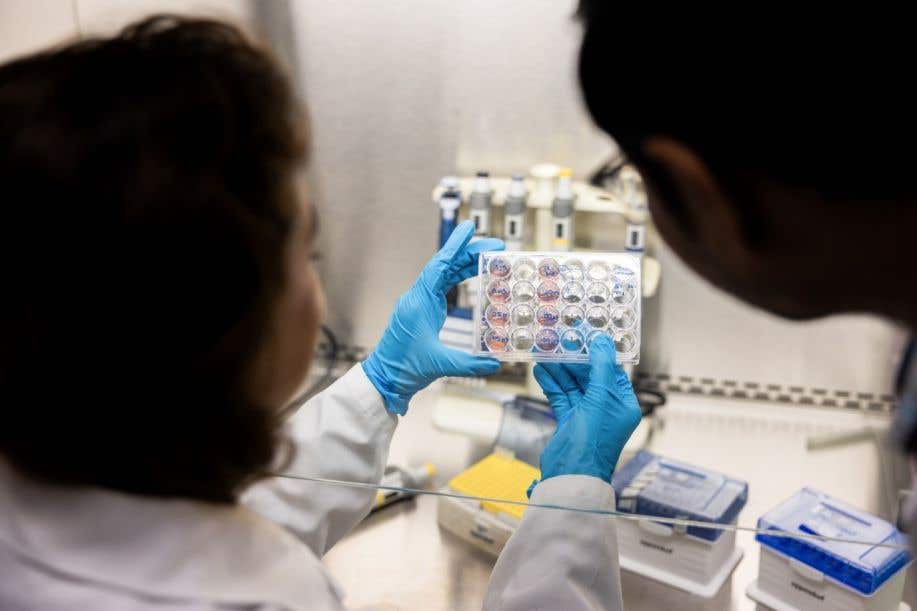Popular artificial sweetener could make cancer treatment less effective
Study finds sucralose weakens cancer immunotherapy effectiveness by disrupting gut bacteria and reducing critical immune functions.

Sucralose, a popular sugar substitute, may limit cancer immunotherapy effectiveness by disrupting gut bacteria. (CREDIT: Getty Images)
If you're reaching for diet soda or other artificially sweetened products during cancer treatment, a new study suggests you might want to reconsider. Researchers at the University of Pittsburgh and UPMC Hillman Cancer Center have found that the common sugar substitute, sucralose, could be hindering the effectiveness of certain cancer treatments, especially immunotherapy.
While artificial sweeteners are popular for their low calories and sugar-free benefits, they might come with hidden costs. The study, published in Cancer Discovery, showed that sucralose consumption is connected to reduced success of immune checkpoint inhibitor (ICI) therapies. These treatments help your immune system fight cancer, especially in melanoma and lung cancer cases.
Sweeteners and Your Gut Microbes
Your gut is home to trillions of microbes, forming a unique microbiome that directly impacts your health, including cancer treatment outcomes. Recent evidence suggests that gut bacteria strongly influence how well patients respond to immunotherapy.
This microbiome isn't static. What you eat, including artificial sweeteners, can quickly alter your gut’s microbial balance. Sucralose, a widely used sugar substitute, disrupts this balance significantly. It decreases levels of helpful bacteria and increases harmful species that break down arginine, an essential amino acid.
Arginine plays a vital role in your immune system, especially in activating T cells, the immune soldiers that fight cancer cells. When gut bacteria degrade arginine excessively, your T cells lose strength, making cancer immunotherapy less effective.
Impact on Cancer Immunotherapy
In this study, mice fed sucralose had weaker immune responses to anti-PD-1 therapy, an immunotherapy commonly used to treat melanoma and lung cancer. These mice developed larger tumors and had poorer survival rates compared to mice not consuming sucralose. The same pattern emerged in cancer patients.
Related Stories
- Natural sweetener Stevia found safe and effective at killing pancreatic cancer cells
- Calorie-free sweeteners could be making you hungrier, study finds
- Common sugar substitute linked to brain blood vessel damage - higher heart attack and stroke risk
Researchers reviewed dietary data from 132 patients with advanced melanoma or non-small cell lung cancer who underwent immunotherapy. Patients consuming higher amounts of sucralose regularly experienced significantly lower treatment success and shorter survival compared to those who consumed little or none.
Dr. Abby Overacre, lead researcher at Pitt, summarized the finding clearly: “When arginine levels were depleted due to sucralose-driven shifts in the microbiome, T cells couldn’t function properly. As a result, immunotherapy wasn’t as effective in mice that were fed sucralose.”
Restoring Arginine Could Boost Treatment
The study also highlighted potential solutions. When researchers supplemented sucralose-fed mice with arginine or citrulline, another amino acid converted into arginine, the effectiveness of immunotherapy improved dramatically. Tumors shrank again, and T cells regained their normal function.
“It’s easy to say, ‘Stop drinking diet soda,’ but when patients are being treated for cancer, they are already dealing with enough, so asking them to drastically alter their diet may not be realistic,” Overacre noted. She believes arginine supplements might be a practical solution to reverse the negative impact of sucralose.
Because citrulline boosts arginine levels better than arginine supplements themselves, researchers are planning clinical trials to test whether citrulline supplements could help cancer patients on immunotherapy who also consume sucralose.
Wider Implications of Artificial Sweeteners
Sucralose isn't the only artificial sweetener under scrutiny. Saccharin, another popular non-nutritive sweetener, similarly alters gut bacteria. This highlights a broader concern: artificial sweeteners marketed as healthier alternatives may pose risks beyond sugar or calories.
Historically, artificial sweeteners have been assumed safe due to their zero-calorie promise. Yet, scientists have limited data supporting these health claims. Today, about one-third of adults in the U.S. regularly consume these sweeteners, often without considering potential health impacts.
In recent decades, dietary habits in Western countries shifted dramatically. People consume less fiber and more processed foods, coinciding with a decrease in gut bacterial diversity. These changes link directly to increased rates of obesity and related illnesses, including certain cancers.
Dr. Diwakar Davar, senior author of the study, emphasizes these findings have broad implications. “We found that sucralose impeded the effectiveness of immunotherapies across a range of cancer types, stages, and treatment modalities,” Davar explained. He suggests that future dietary advice for cancer patients could include managing artificial sweetener intake.
Researchers now aim to study how other artificial sweeteners, including aspartame, xylitol, and stevia, affect gut bacteria, immunity, and cancer treatment outcomes. Their goal is to develop personalized dietary guidance or supplements tailored to cancer patients receiving immunotherapy.
A New Approach to Dietary Advice
While doctors might traditionally suggest reducing sugar intake, these findings complicate the picture. Sugar alternatives, once considered a safe solution, might create unintended health risks for cancer patients undergoing immunotherapy.
If you're currently undergoing cancer treatment or considering immunotherapy, you might benefit from discussing your diet with your healthcare provider, including your intake of artificial sweeteners. While completely changing your eating habits can be challenging, small dietary shifts or supplements could greatly enhance your treatment effectiveness.
The study by Pitt and UPMC researchers represents an important step toward personalized cancer care. Understanding how dietary choices impact treatment outcomes could lead to new guidelines that improve survival rates and quality of life for many cancer patients.
Note: The article above provided above by The Brighter Side of News.
Like these kind of feel good stories? Get The Brighter Side of News' newsletter.



